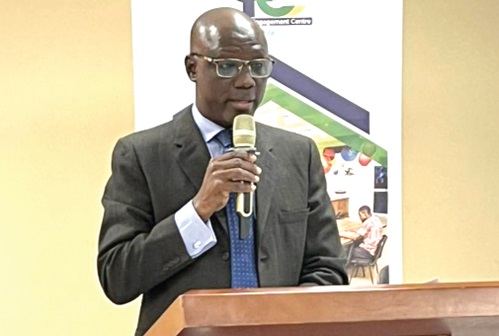The Ghana Library Authority (GhLA) has positioned libraries as centres of digital learning and spaces for cultural preservation and inclusiveness.
According to the authority, modern libraries must balance technology with promoting local languages, cultural identity and access for all.
The Executive Director of GhLA, Alhassan Ziblim, who made the call at a forum on “digital learning outcomes” at the Ghana Libraries Authority in Accra, said the authority had deliberately woven cultural identity into its modernisation agenda.
He said that in recognising the importance of culture and language literacy, the authority had introduced reading programmes in local dialects such as Ga in Accra and Dagbani in Tamale to ensure that culture was not left behind in the learning journey.
Digital literacy meets cultural identity.
Speaking at the forum, the executive director said digital skills were now the foundation upon which learners and future leaders would thrive, but stressed that they must coexist with cultural identity.
Mr Ziblim said a number of new libraries were being established in schools and underserved areas, with child-friendly reading corners, ICT facilities and STEM hubs to give children hands-on exposure to science and technology.
“These interventions are linked by a single goal: to make libraries inclusive spaces that reflect both the future and the heritage of Ghana,” he added.
Mr Ziblim called on the government, development partners and communities to support the evolving role of libraries, stressing that the forum was about digital learning and deepening collaboration.
“Together, we can shape a future where libraries remain at the heart of digital transformation while holding on to our cultural identity,” he said.
Mr Ziblim emphasised the need to review the Ghana Library Board Act, which was last revised in 1970.
He said the existing law was outdated and did not reflect current trends in library management.
Inclusiveness
The Programme Manager of Electronic Information for Libraries (EIFL), Ramunė Petuchovaite, commended the unique blending of digital learning with inclusiveness and cultural identity.
She said the EIFL had worked with GhLA for over two decades, supporting projects that built the capacity of public libraries to meet community needs through technology and new services.
Ms Petuchovaite said a recent project involved 15 public libraries, 30 librarians and ICT coordinators.

